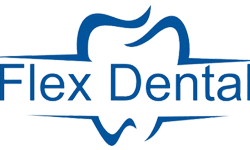Mobile: (813) 999-1092
Email: frontdesk@flex-dental.com
Address:
310 South Dale Mabry Highway STE 120, Tampa, FL 33609
Posted by Flex Dental on Dec 7 2022, 10:48 PM
A dental emergency refers to any situation where pain, swelling, or injury to the mouth and teeth requires immediate attention. The most common dental emergencies are the following:
While toothaches are usually a sign of decay, they can also be caused by gum disease. If your gums are swollen or bleeding, call us right away so we can treat the infection before it spreads. A cavity can also cause a toothache.
A broken or cracked tooth requires immediate treatment from a dentist to prevent infection and damage to the surrounding teeth. If the tooth is cracked, rinse your mouth with warm salt water to relieve pain. Avoid placing pressure on the tooth until you can see your dentist. Rinse your mouth with warm water and use an ice pack to reduce pain and swelling until you can be seen by the dentist.
A knocked-out tooth is among the most serious dental emergencies, and while losing a tooth can be upsetting, it’s important to remain calm, as a dentist can usually save the tooth. To recover a lost tooth, hold it by the crown and rinse it gently with water. Then, if possible, place the tooth back into its socket and bite down to keep it in place. If this isn’t possible, the next best thing to do is to place it in a glass of milk until you can get to the dentist’s office.
A loose or broken crown can be a major inconvenience. If the crown is cracked, you should call to schedule an appointment right away so we can determine the best way to remedy your situation. In some cases, we may be able to repair the crown in the office using CEREC technology for a same-day fix. In other cases, we may need to use an inlay or onlay, which requires two appointments.
A lost filling or crown may not seem like an emergency, but a lost restoration exposes the tooth to harsh conditions and bacteria that can cause further damage. After you lose a crown or filling, make an appointment with your dentist right away for a replacement.
A sudden severe toothache could be a sign of an abscess, which needs to be treated right away. The condition can be the result of sinus infections, toothaches, issues with the blood vessels or nerves, or other conditions. It’s important to see your emergency dentist as soon as possible if you have severe jaw pain.
To learn more about oral care, visit us at 310 S Dale Mabry Hwy Suite#120, Tampa, FL 33609. Contact us at (813) 999-1092 or visit our website to book an appointment.

Mobile: (813) 999-1092
Email: frontdesk@flex-dental.com
310 South Dale Mabry Highway STE 120, Tampa, FL 33609